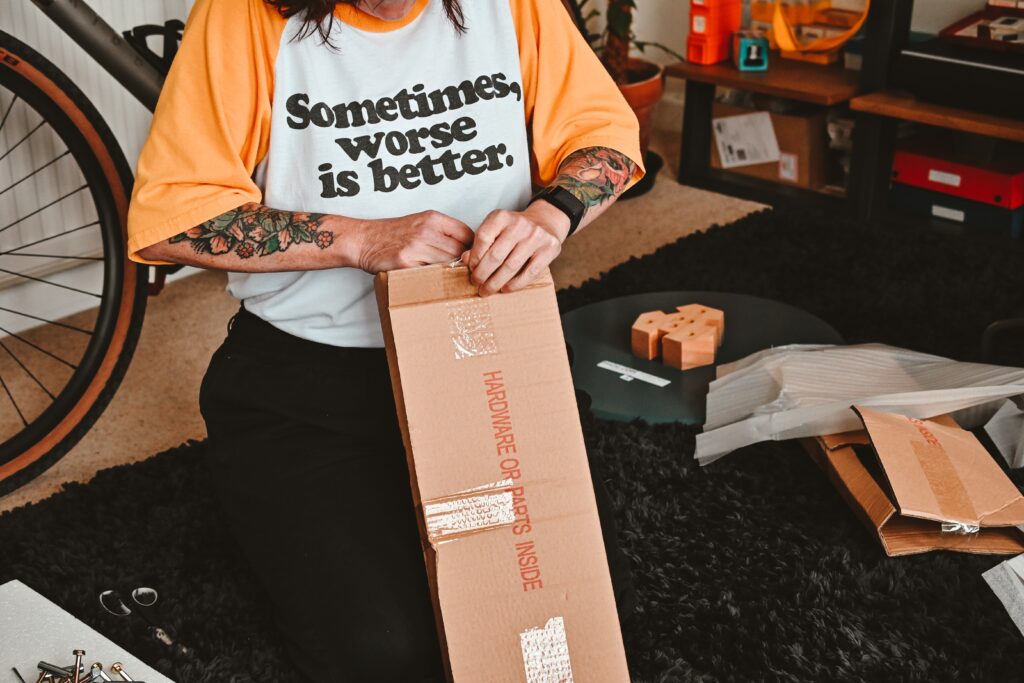If you’ve been looking for ways to minimize your environmental impact and live a more sustainable lifestyle, creating diy eco friendly products at home may be the solution you’ve been searching for. From household cleaners to personal care items, the possibilities are endless. Not only will you reduce waste and eliminate harmful chemicals, but you’ll also have the satisfaction of knowing that you’re taking small steps towards a greener future. Get ready to unleash your creativity and discover the world of DIY eco-friendly products that are both easy to make and environmentally conscious.
1. Household Cleaners
Household cleaners are essential for keeping your home clean and free of dirt, germs, and grime. Instead of relying on store-bought cleaners that are often filled with harsh chemicals, you can make your own eco-friendly alternatives using simple ingredients found in your pantry. Not only are these DIY cleaners better for the environment, but they are also safer for your family and pets. Let’s explore some of the most commonly used household cleaners and how you can make them at home.
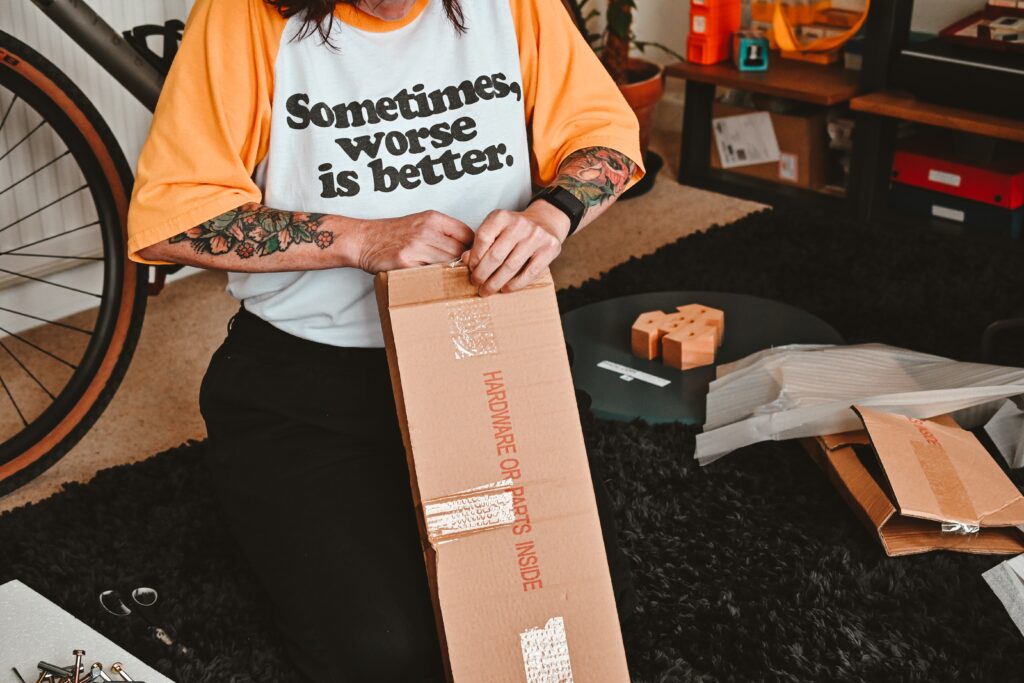
1.1 All-Purpose Cleaner
An all-purpose cleaner is a versatile product that can be used to clean various surfaces in your home, such as countertops, floors, and appliances. Instead of purchasing a commercial all-purpose cleaner, you can easily make your own with just a few ingredients. One popular recipe involves mixing equal parts of white vinegar and water in a spray bottle. You can also add a few drops of essential oils, such as lemon or lavender, for a pleasant scent. This homemade all-purpose cleaner is not only effective at removing dirt and grime but is also safe to use on most surfaces.
1.2 Window and Glass Cleaner
Cleaning your windows and glass surfaces can be a tedious task, especially when dealing with streaks and smudges. Fortunately, you can create a homemade window and glass cleaner that is both effective and eco-friendly. One common recipe combines equal parts of water and distilled white vinegar in a spray bottle. Spray the solution onto the glass surface and wipe it clean with a lint-free cloth or newspaper. The acidity of the vinegar helps to dissolve grime, leaving your windows and glass surfaces sparkling clean.
1.3 Disinfectant Spray
In today’s world, disinfecting surfaces has become more important than ever. To create an eco-friendly disinfectant spray, you can combine rubbing alcohol or high-proof vodka with water in a spray bottle. Add a few drops of essential oils with antimicrobial properties, such as tea tree or eucalyptus oil, for added disinfecting power and a pleasant scent. This homemade disinfectant spray can be used on frequently touched surfaces, such as doorknobs, countertops, and light switches, to kill germs and bacteria without the use of harsh chemicals.
1.4 Toilet Cleaner
Keeping your toilet clean and fresh is essential for maintaining a hygienic bathroom. Instead of relying on commercial toilet cleaners filled with harsh chemicals, you can make your own natural toilet cleaner. One popular recipe involves combining baking soda and vinegar. Sprinkle baking soda inside the toilet bowl, followed by pouring vinegar over it. Let the mixture sit for a few minutes, then scrub the bowl with a toilet brush and flush. The combination of baking soda and vinegar helps to remove stains, eliminate odors, and disinfect the toilet.
1.5 Floor Cleaner
Cleaning your floors is an essential part of maintaining a clean and healthy home environment. Instead of using store-bought floor cleaners that may contain harmful chemicals, you can make your own eco-friendly floor cleaner using simple ingredients. For hardwood or laminate floors, you can create a homemade cleaner by mixing equal parts of water and vinegar in a bucket. For tile or linoleum floors, you can mix warm water with a few drops of liquid castile soap and essential oils for a pleasant scent. These DIY floor cleaners are safe for your floors and the environment.
2. Personal Care Products
Taking care of yourself goes beyond just what you put in your body, it also includes what you use on your body. Many personal care products on the market today are filled with chemicals that can be harmful both to your health and the environment. By making your own natural personal care products, you can have control over the ingredients and ensure that you are using eco-friendly alternatives. Let’s explore some of the DIY personal care products that you can easily make at home.
2.1 Homemade Soap
Soap is an essential personal care product that we use every day. Rather than purchasing commercial soaps that often contain synthetic fragrances and additives, you can make your own homemade soap with natural ingredients. The process of making soap involves combining oils or fats with lye, which undergoes a chemical reaction called saponification. There are numerous soap recipes available, ranging from simple melt-and-pour methods to more advanced cold-process techniques. By making your own soap, you can customize the ingredients, scents, and textures to create a soap that suits your skin’s needs.
2.2 Natural Shampoo
Many commercial shampoos contain sulfates, parabens, and synthetic fragrances that can strip the hair of its natural oils and contribute to environmental pollution. Making your own natural shampoo allows you to use gentle ingredients that cleanse, nourish, and protect your hair without any harmful effects. One simple recipe involves combining liquid castile soap with aloe vera gel, coconut milk, and essential oils. This homemade shampoo gently cleanses the hair while providing moisture and leaving it soft and shiny.
2.3 DIY Deodorant
Deodorants and antiperspirants are products commonly used to control body odor and reduce sweat. However, many commercial deodorants contain aluminum compounds and other ingredients that can be harmful to your health and the environment. Creating your own DIY deodorant allows you to control the ingredients and avoid potentially harmful substances. A popular recipe for homemade deodorant involves mixing coconut oil, baking soda, arrowroot powder, and essential oils. This natural deodorant recipe helps to neutralize odors and keeps you feeling fresh throughout the day.
2.4 Toothpaste
Maintaining good oral hygiene is an important aspect of self-care, and toothpaste is a product we use daily. Making your own toothpaste allows you to avoid the addition of artificial sweeteners, preservatives, and fluoride found in many commercial toothpaste brands. A simple homemade toothpaste recipe involves mixing baking soda, coconut oil, and a few drops of peppermint or spearmint essential oil. This natural toothpaste cleans and freshens your breath while promoting good oral health.
2.5 Body Scrub
Exfoliating your skin helps to remove dead skin cells, promote circulation, and leave your skin feeling smooth and refreshed. Instead of purchasing body scrubs containing microplastics and synthetic fragrances, you can easily make your own eco-friendly body scrub. One popular recipe includes combining sugar or salt with a carrier oil, such as coconut or almond oil, and adding a few drops of essential oils for fragrance. This homemade body scrub not only exfoliates your skin but also moisturizes and nourishes it, leaving you with a healthy and glowing complexion.
3. Beauty and Skincare
Taking care of your skin is an important part of any self-care routine. Many beauty and skincare products on the market contain harsh chemicals that can irritate the skin and harm the environment. By making your own natural beauty and skincare products, you can ensure that you are using eco-friendly alternatives that are gentle on your skin. Let’s explore some DIY beauty and skincare products that you can easily make at home.
3.1 Facial Cleanser
Having a clean and clear complexion is the foundation of healthy skin. Instead of using commercial facial cleansers that may contain harsh ingredients, you can make your own gentle and effective facial cleanser with natural ingredients. One popular DIY facial cleanser involves mixing equal parts of honey and organic coconut oil. Honey is a natural antibacterial agent that helps to cleanse the skin while coconut oil provides nourishment and hydration. This homemade facial cleanser removes dirt, makeup, and impurities without stripping the skin of its natural oils.
3.2 Homemade Face Mask
Treating yourself to a rejuvenating face mask is a great way to pamper your skin and address specific skincare concerns. Instead of relying on store-bought face masks that often contain synthetic ingredients, you can create your own natural face masks using ingredients from your pantry. For example, a simple homemade face mask recipe involves mixing mashed avocado with a teaspoon of honey and a squeeze of lemon juice. Avocado is rich in vitamins and antioxidants that nourish the skin, while honey and lemon juice provide antibacterial and brightening properties. This DIY face mask leaves your skin feeling refreshed, hydrated, and radiant.
3.3 Natural Moisturizer
Moisturizing your skin is essential for maintaining its health and softness. By making your own natural moisturizer, you can ensure that you are using ingredients that are nourishing and free of harmful chemicals. One popular homemade moisturizer recipe involves combining shea butter, coconut oil, and a few drops of essential oils, such as lavender or rosehip. Shea butter provides deep hydration, while coconut oil helps to lock in moisture. The addition of essential oils provides a pleasant scent and additional benefits for the skin. This DIY moisturizer is suitable for all skin types and leaves your skin feeling nourished and supple.
3.4 Lip Balm
Keeping your lips moisturized is important to prevent drying, cracking, and discomfort. Making your own lip balm allows you to avoid the petroleum-based ingredients often found in commercial lip balms. A simple homemade lip balm recipe involves melting together beeswax, coconut oil, and a few drops of essential oils, such as peppermint or lavender. Beeswax acts as a natural emollient that creates a protective barrier on the lips, while coconut oil provides nourishment and hydration. This DIY lip balm keeps your lips soft, smooth, and protected from the elements.
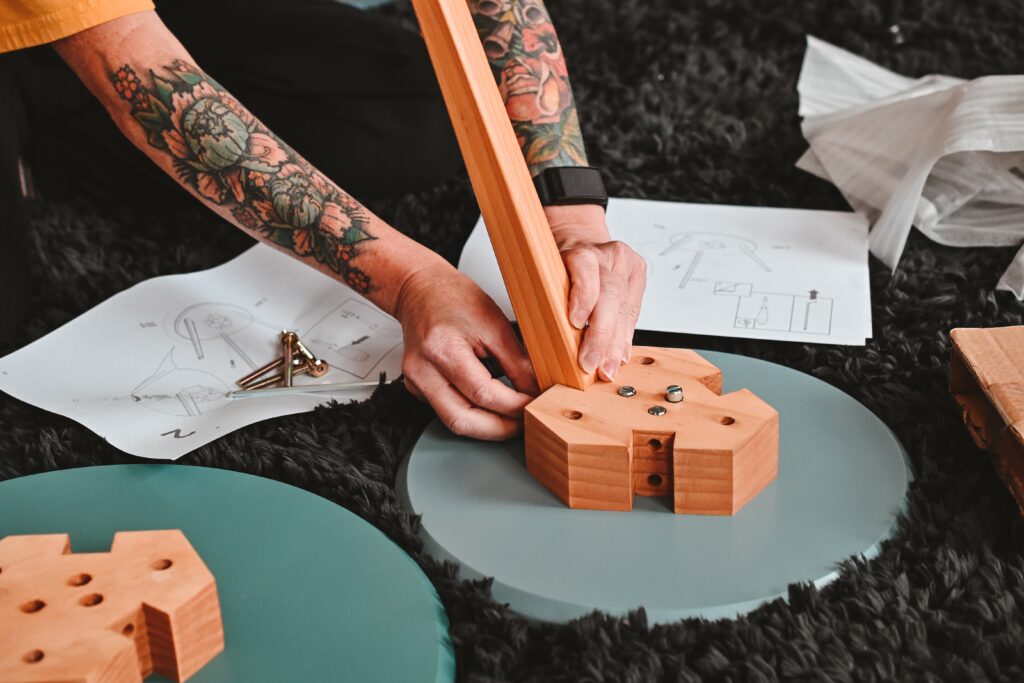
3.5 DIY Hair Mask
Nourishing your hair with a deep conditioning treatment can help to repair damage, improve moisture retention, and enhance shine. Instead of using store-bought hair masks that may contain silicones and artificial fragrances, you can create your own natural hair mask. One popular recipe involves mixing mashed ripe banana with a tablespoon of olive oil and a teaspoon of honey. Bananas are rich in vitamins and minerals that strengthen the hair, while olive oil adds shine and moisture. Honey helps to moisturize and condition the hair. This homemade hair mask leaves your locks looking healthy, shiny, and revitalized.
4. Household Products
In addition to household cleaners, there are various other products in your home that can be replaced with eco-friendly alternatives. By making your own household products, you can reduce your environmental footprint and minimize your exposure to harmful chemicals. Let’s explore some DIY household products that you can easily make at home.
4.1 Beeswax Food Wraps
Replacing single-use cling film and plastic wrap with reusable beeswax food wraps is a great way to reduce plastic waste in your kitchen. Beeswax wraps are made by applying a mixture of beeswax, jojoba oil, and pine resin to a cotton fabric. This mixture creates a natural and flexible wrap that can be molded around food containers or directly over food items. Beeswax food wraps can be washed and reused multiple times, making them a sustainable and eco-friendly alternative to plastic wrap.
4.2 Homemade Laundry Detergent
Commercial laundry detergents often contain synthetic fragrances, phosphates, and optical brighteners that can be harmful to the environment. Making your own laundry detergent not only allows you to avoid these chemicals but also helps to reduce packaging waste. A simple recipe for homemade laundry detergent involves grating a bar of natural soap, such as castile soap, and mixing it with washing soda and borax. This homemade laundry detergent is effective at removing stains and odors, leaving your clothes clean and fresh.
4.3 Dishwashing Soap
Dishwashing soap is another household product that can be easily made at home using natural ingredients. One popular recipe involves mixing liquid castile soap with water and a few drops of essential oils for a pleasant scent. This homemade dishwashing soap effectively cuts through grease and grime, leaving your dishes sparkling clean. You can store this soap in a refillable dispenser, reducing your reliance on single-use plastic bottles.
4.4 Air Fresheners
Many commercial air fresheners contain synthetic fragrances and chemicals that can contribute to indoor air pollution. Making your own natural air fresheners allows you to create a pleasant and fresh fragrance in your home without using harmful ingredients. One simple DIY air freshener involves combining water, vodka, and a few drops of your favorite essential oils in a spray bottle. Give it a gentle shake, then spray the mixture around your home to eliminate odors and create a natural and uplifting scent.
4.5 Natural Pest Repellent
Dealing with pests in your home or garden can be frustrating, but using chemical pesticides can be harmful to the environment and the beneficial organisms in your ecosystem. Creating your own natural pest repellents can help to keep pests at bay without the use of harsh chemicals. For example, you can make a homemade insect repellent by combining water, vinegar, and a few drops of essential oils, such as citronella or eucalyptus. This natural pest repellent can be sprayed around your home or garden to deter insects without harming them or the environment.
5. Gardening Supplies
Gardening is a rewarding and sustainable hobby that allows you to grow your own food, beautify your space, and connect with nature. By using eco-friendly gardening supplies, you can minimize your environmental impact and create a healthier and more sustainable garden. Let’s explore some DIY gardening supplies that you can easily make at home.
5.1 Organic Fertilizer
Fertilizing your plants is important for providing essential nutrients and promoting healthy growth. Rather than relying on synthetic fertilizers that can harm the environment, you can create your own organic fertilizer using kitchen scraps and other natural ingredients. For example, you can make a nutrient-rich compost tea by steeping compost in water for several days. This organic fertilizer can be diluted and applied to your plants to provide them with a natural and balanced source of nutrients.
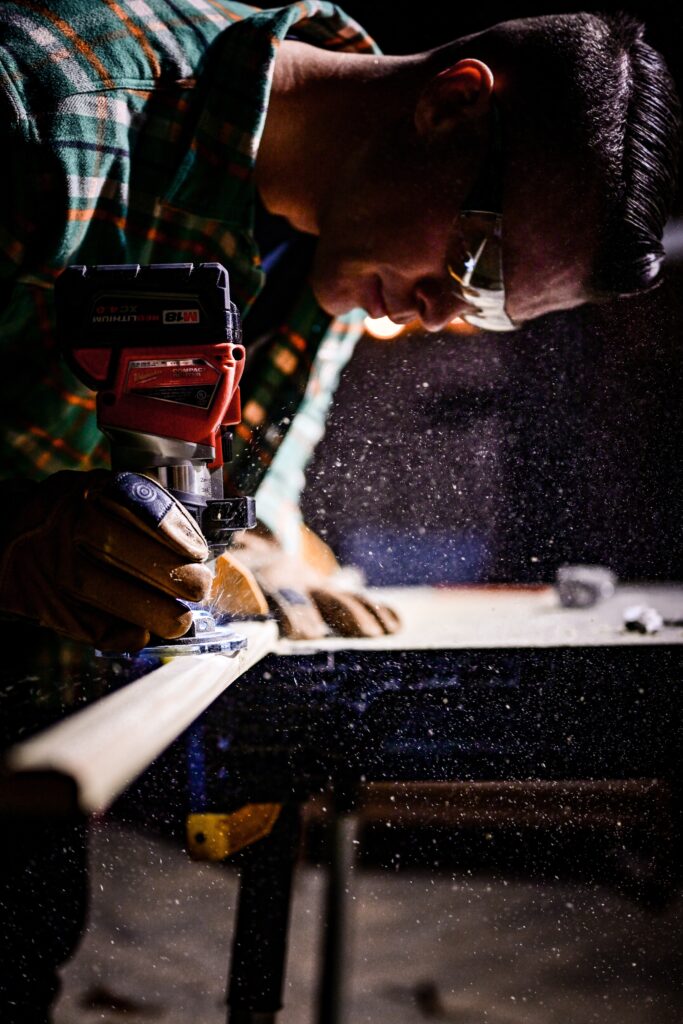
5.2 DIY Compost
Composting is a natural process that transforms organic waste into nutrient-rich soil that can be used to fertilize your garden. Creating your own compost pile allows you to reduce your waste and turn it into a valuable resource. You can compost various kitchen scraps, such as vegetable peels, coffee grounds, and eggshells, along with yard waste like grass clippings and fallen leaves. Through a combination of heat, moisture, and decomposition, these organic materials will break down into nutrient-rich compost that can be added to your garden beds or used as potting soil.
5.3 Natural Pesticides
Protecting your plants from pests and diseases is an important part of successful gardening. Rather than relying on chemical pesticides, you can make your own natural pesticides using ingredients that are safe for the environment. For example, a homemade insecticidal soap can be made by mixing liquid castile soap with water and a few drops of essential oils, such as neem or rosemary. This natural pesticide can be sprayed directly on affected plants to control pests without harming beneficial insects.
5.4 Seedling Pots
Starting your plants from seeds is a cost-effective and sustainable way to grow your garden. Instead of purchasing plastic seedling pots, you can make your own biodegradable seedling pots using newspaper. Simply take a sheet of newspaper and fold it into a cylinder shape, securing it with tape or staples. Fill the pot with seed-starting soil, plant your seeds, and place them in a tray or box. These newspaper pots can be planted directly into the ground or a larger container, as they will naturally decompose over time.
5.5 Plant Watering System
Conserving water is important in any garden, especially in areas with limited water resources. Creating your own plant watering system can help to minimize water waste and ensure that your plants receive the right amount of moisture. One simple DIY watering system involves repurposing plastic bottles as self-watering devices. Make small holes in the bottle cap, fill it with water, and bury it upside down in the soil near your plants. The water will slowly release into the soil, providing a steady and efficient source of moisture.
6. Pet Care Products
Just like humans, pets also deserve to be cared for with eco-friendly products that are safe for their health and the environment. Making your own natural pet care products allows you to have peace of mind knowing exactly what goes into them. Here are some DIY pet care products that you can easily make at home.
6.1 Homemade Pet Shampoo
Washing your pets regularly is essential for maintaining their cleanliness and health. However, many commercial pet shampoos contain harsh chemicals that can be harmful to your pets and the environment. Creating your own homemade pet shampoo ensures that you are using gentle and natural ingredients. One popular recipe involves mixing liquid castile soap, coconut oil, and a few drops of pet-safe essential oils, such as lavender or chamomile. This DIY pet shampoo cleanses your pet’s fur while providing moisture and leaving a pleasant scent.
6.2 Natural Flea and Tick Repellent
Protecting your pets from fleas and ticks is important for their health and comfort. Instead of using commercial flea and tick repellents that may contain harmful chemicals, you can make your own natural repellent using safe ingredients. One recipe involves combining apple cider vinegar, water, and a few drops of pet-safe essential oils, such as cedarwood or lemongrass. This DIY flea and tick repellent can be sprayed onto your pets before outdoor adventures, helping to repel pests without any harmful effects.
6.3 Pet Toothpaste
Maintaining good oral hygiene in your pets is important for their overall health. Instead of using commercial pet toothpaste that may contain artificial flavors and preservatives, you can make your own natural pet toothpaste. A simple recipe involves combining coconut oil with baking soda and a few drops of pet-safe essential oils, such as peppermint or parsley. This homemade pet toothpaste cleans your pet’s teeth and freshens their breath without any harmful ingredients.
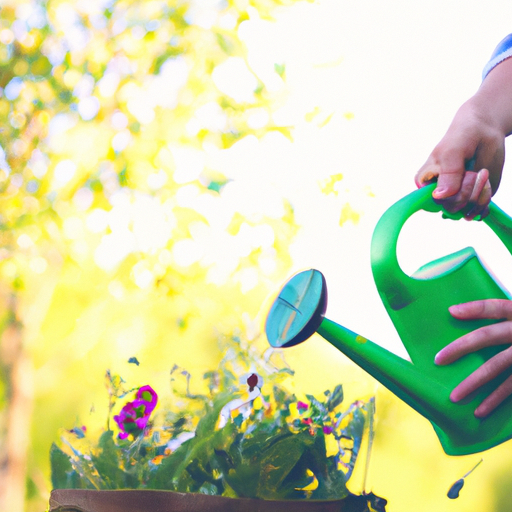
6.4 Paw Balm
Your pet’s paws can become dry and cracked, especially during harsh weather conditions. Using a homemade paw balm can help to moisturize their paws and protect them from environmental damage. One recipe involves combining shea butter, coconut oil, and a few drops of pet-safe essential oils, such as lavender or calendula. This DIY paw balm can be applied to your pet’s paws regularly to keep them moisturized, soft, and protected.
6.5 Pet Odor Eliminator
Dealing with pet odors is a common challenge for pet owners. Instead of using commercial air fresheners that may contain synthetic fragrances, you can create your own natural pet odor eliminator. One simple recipe involves mixing water, vinegar, and a few drops of pet-safe essential oils, such as lemon or eucalyptus. This homemade pet odor eliminator can be sprayed around your home to neutralize odors and create a fresh and clean environment for both you and your pets.
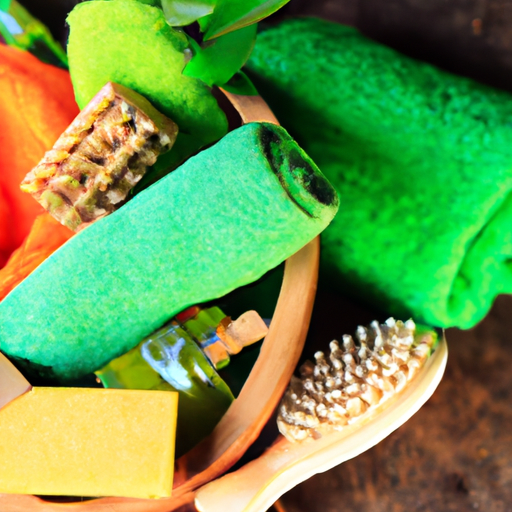
7. DIY Natural Soaps
Creating your own natural soaps allows you to customize and control the ingredients that come into contact with your skin. By using natural oils, butters, and essential oils, you can create luxurious and eco-friendly soaps. Let’s explore some DIY natural soap recipes that you can try at home.
7.1 Lavender Oatmeal Soap
Lavender essential oil is known for its calming properties, making it a popular choice for soap fragrance. A DIY lavender oatmeal soap involves combining lavender essential oil with a base of melted glycerin soap, oatmeal, and dried lavender flowers. This gentle and soothing soap is ideal for relaxing baths or as a daily cleanser.
7.2 Citrus Exfoliating Soap
Citrus essential oils, such as orange or lemon, can provide a refreshing burst of fragrance in your soap. A DIY citrus exfoliating soap involves combining citrus essential oils with a base of melted shea butter soap and adding exfoliating ingredients like ground coffee or poppy seeds. This invigorating soap gently exfoliates the skin, leaving it soft and refreshed.
7.3 Tea Tree Oil Soap
Tea tree oil is known for its antibacterial and antifungal properties, making it a popular choice for acne-prone or sensitive skin. A DIY tea tree oil soap involves combining tea tree essential oil with a base of melted castile soap, aloe vera gel, and other skin-nourishing ingredients. This purifying and cleansing soap helps to reduce acne and soothe irritated skin.
7.4 Peppermint Charcoal Soap
Peppermint essential oil provides a cooling and refreshing sensation, making it a great choice for soap. Charcoal is known for its detoxifying properties and ability to draw out impurities from the skin. A DIY peppermint charcoal soap involves combining peppermint essential oil and activated charcoal powder with a base of melted coconut oil soap. This invigorating and purifying soap helps to cleanse and clarify the skin.
7.5 Honey and Milk Soap
Honey and milk are both known for their moisturizing and nourishing properties. A DIY honey and milk soap involves combining honey, goat’s milk soap base, and other skin-loving ingredients such as shea butter or almond oil. This gentle and hydrating soap provides a luxurious lather and leaves your skin feeling soft and supple.
So What Do You Think About Your Own DIY Eco Friendly Products?
Making your own diy eco friendly products at home is not only a sustainable choice but also allows you to have control over the ingredients that come into contact with your body and the environment. Whether it’s household cleaners, personal care products, beauty and skincare items, gardening supplies, pet care products, eco-friendly crafts, natural insect repellents, upcycled home decor, or DIY natural soaps, there are countless opportunities for you to reduce waste and create a more environmentally friendly lifestyle. Get creative, have fun, and enjoy the satisfaction of making your own eco-friendly products that are good for you and the planet.
